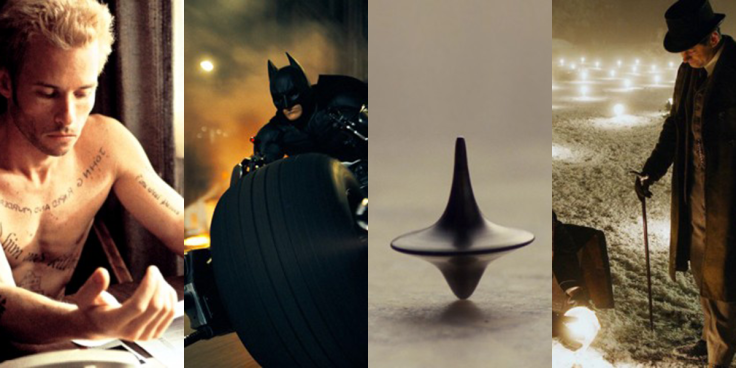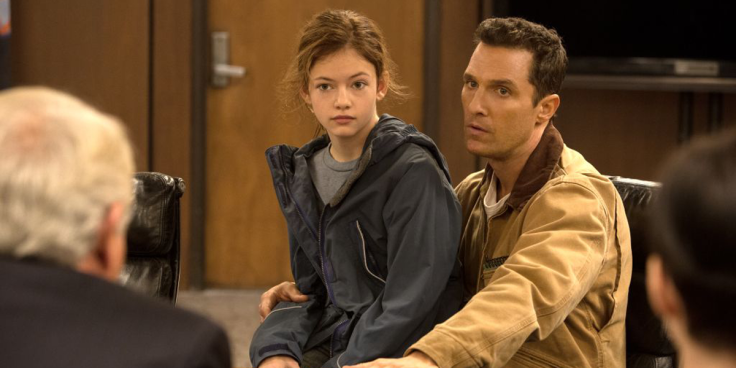Interstellar, Christopher Nolan & the Optimism of Filmmaking

This weekend film goers around the world will be wandering out of cinemas in something of a daze as they attempt to process Christopher Nolan's Interstellar.
Stumbling through a wet London recently I attempted to arrange my mess of thoughts about the film into some kind of order, and in doing so came to the conclusion that for all the space travel, astrophysical pondering and soppy talk of love, Interstellar is predominantly a film about optimism.
Optimism seems to be a quality the modern world tries relentlessly to stamp out. However - without wanting to sound like a greetings card or a Tumblr user pent up on sugar - optimism is not something that can ever be extinguished.
In Interstellar we follow intrepid space explorers in far flung space and an earthbound population teetering on the brink of extinction. The possibility of our existence as a species ending provides the extreme that tests the belief of Nolan's characters.
One of my main gripes about the film was with how overpoweringly sentimental it is. The story of family and love reminded me in many ways of Steven Spielberg's work, but the execution was problematic.
From a director better known for washed out pallets and po-faced, masculine storylines, such a powerful, sweet message was unexpected, but looking at Nolan's career I've noticed this kind of hopeful tone slowly creeping in.

At the close of his debut feature Following the protagonist is unable to prove his innocence having been the victim of a charming con man's game. Memento - the film that made Nolan's career - ends on a grave note as we discover Leonard has been as willing to abuse and exploit his own damaged mind as all those around him.
Move through his filmography and glimmers of optimism start to appear. Insomnia ends with the death of its lead, but not before he instructs his understudy not to hide his dark truth. The Prestige meanwhile ends in a dark and twisted fashion for one of its obsessive magicians, but with a hopeful, joyous reunion for his rival.
Then comes The Dark Knight, which ends with a lie, but one conjured for good intentions. The Joker has wreaked havoc on Gotham, breaking the mind of its white knight Harvey Dent. But as it appears he has won "the fight for Gotham's soul" Batman makes a heroic and selfless decision to put a stop to it.
Inception's ending was interpreted by many in a much more sombre way than it was intended. Had Cobb actually been dreaming, then his entire journey would have failed, however Nolan actively gives the audience enough evidence in that final scene (the visible, audible wobble of the totem and the older child actors) that we can assume his personal journey indeed ends in reality.
The real point of Inception's climax is that Cobb no longer cares whether he's dreaming or not. What we don't see but can safely assume would happen, is him returning to that table and finding his reality confirmed. It's the happy ending we hope for, don't see, but is certainly implied.
Nolan's films are often gripping because they build to endings toing the line between crowd-pleasing resolution and poignant moroseness, which is how he infuses his endings with elements of both.
Increasingly however, his finales have been more optimistic and hopeful. However in The Dark Knight Rises this becomes a problem when Nolan's pursuit of a happy ending creates a logical nightmare when it is revealed that Bruce Wayne faked his death to start afresh.

Interstellar is an even more hopeful story about the lengths love can drive us to, and with that increasing presence of hope in Nolan's films this sentimentality shouldn't really have been as surprising as it was.
The reason why Nolan's work has grown more optimistic harks back to Inception. Often interpreted as being about the art of filmmaking, the protagonist's team is based on a group of filmmakers, with a producer, actor, special effects supervisor and a director.
Filmmakers, like the team in Inception, are purveyors of knowing deceit the kind of which people readily gobble up. Movies are little white lies told to entertain, comfort and inform, and the act of making them is inherently optimistic.
Even films about worst things imaginable aren't made to wallow in depressing subject matter, but to shine a light on the darker elements of ourselves and serve as warning. There are exceptions, there always are, but overwhelmingly optimism drives the film industry on both large and small scales.
Any film, released by any director, on YouTube or in enormous IMAX theatres, is released in the hope of positive reaction, of reaching out, touching and stirring another human soul. That's the beauty of movies, and why we love them so much.
© Copyright IBTimes 2025. All rights reserved.






















